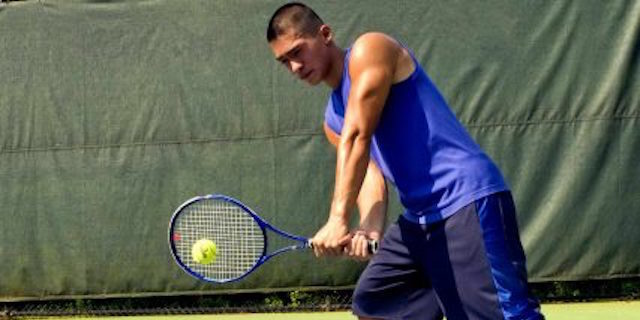
We asked Dr. Olszewski to share her thoughts on handling the stress of athletic competition with young people and their parents. Here’s what she had to say.
Q: Which athletes are affected by stress, and when do they feel it?
A: Many studies have found that all levels of athletes are affected by stress, from the youngest players to elite competitors. Stress is experienced both before a competition and, even more prevalent, after experiencing a loss. Athletes participating in individual sports like tennis experience more stress than athletes playing team sports. Pressure and stress can lead to negative outcomes for young athletes, such as fear of failure, feelings of inadequacy, guilt, and negative self-perception and negative self-talk, and even feeling physically sick without a physical cause. Parents can be essential to alleviating stress, but they can also be central to the problem by placing unrealistic expectations or rejecting a young person when there is a loss.
Q: What causes stress in young athletes?
A: Some stressors are actually in the young athlete’s control, such as making an error or needing to improve their stamina, while others are not, like an official’s “bad” call. Stress often can result from unrealistic expectations being placed on an athlete by coaches or parents. It can also result from the pressure to always perform at an optimal level. No one is perfect. No one can play the perfect game every day, even among the most elite competitors. The problem with stress is, it can undermine the satisfaction and enjoyment of the sport, and can lead to burnout or seep into other areas of life.
Q: What can you do to ease stress before a competition?
A: We know that anxiety and performance have a curvilinear relationship. Not enough anxiety, and you are too relaxed to have your best game, while too much also can throw your game off. The key is to reach just the right level of anxiety to achieve an optimal performance. Coaches and parents are essential to managing stress and should encourage relaxation techniques during practice and at home (e.g., deep breathing, progressive muscle relaxation, mentalization) so that the athlete can employ these techniques during the game to keep their anxiety and stress at optimal levels. Getting enough sleep the night before a competition is key.
Q: What should you say when a young person has a bad game?
A: Talk to your child. Help the child accept that he/she cannot control everything. Help them put their stress into perspective: Is it really as bad as they think? What are the lessons that were learned in the game? Spin it to the positive. Welcome humor: a good laugh goes a long way. Help your child take a time-out. Encourage your child to listen to music, meditate, get a massage, or engage in progressive muscle relaxation or deep breathing (or other relaxation technique). Stepping back from the problem helps clear the head. Maintain a healthy diet.
Q: What if a young person seems too stressed out?
A: Often kids have a hard time expressing their feelings verbally due to lack of an emotional vocabulary. Watch out for excessive words and negative self-statements (“I suck,” “Everyone hates me”). Children tend to express their stress in their behavior, by excessive irritability or moodiness, worrying, complaining or crying more than usual, withdrawing from activities they used to enjoy, eating or sleeping too much or too little, and having pains like headaches or stomachaches without a physical cause.
If a parent is concerned that a child is experiencing too much stress, it may be beneficial to work with a licensed mental health professional such as a psychologist. Psychologists are trained to help identify problems and help individuals learn and employ various coping strategies to overcome/resolve/tolerate intense stressors such as those experienced with athletics.
A version of this post was originally published in August 2016.
Linda Escobar Olszewski, PsyD is the Assistant Director of Psychology Education and Training at the Mount Sinai Adolescent Health Center and Assistant Professor in Pediatrics and Psychiatry at the Icahn School of Medicine at Mount Sinai. She holds a doctorate in clinical child psychology from Pace University, as well as an MA in psychology and a MSEd in School Psychology. She is also a former Division 1 athlete and a certified Level 1 USA Swimming coach.
The Mount Sinai Adolescent Health Center is located in New York City. It provides comprehensive, confidential, judgment free health care at no charge to over 10,000 young people every year. This column is not intended to provide medical advice, professional diagnosis, opinion, treatment or services to you or to any other individual, only general information for education purposes only.


